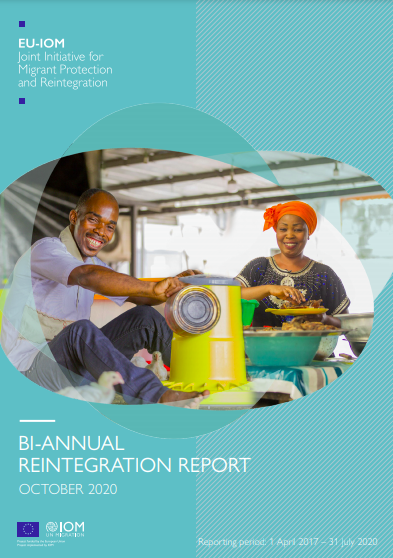EU-IOM Joint Initiative for Migrant Protection and Reintegration. Biannual Reintegration Report #4 - October 2020

Since the beginning of 2020, the COVID-19 pandemic has posed a global challenge and demanded stronger coordination and governance among the international development organizations, governments, civil societies, and between stakeholders within the countries. The problem stipulates responses that go far beyond just the health and well-being of the population but swiftly became economic, social, political, ethnic, and gender issues. While most of the population has been vastly affected by the pandemic, not everyone exhibits the same resilience to the measures that have been implemented worldwide. Particularly, in the Sahel and Lake Chad region, the pandemic intensifies an already present fragility, most especially on the vulnerable migrants, one reason being most of their economic and social activities have been affected by the unprecedented mobility restrictions.
The target countries’ governments, like most in the world, have implemented border closures, lockdowns or curfews, and travel restrictions and bans, to curb the spread of the virus. These measures reshaped the mobility of the population and impacted the operations of the EU-IOM Joint Initiative with the respective partner institutions on the return and reintegration of migrants. This fourth biannual reintegration report covering the period from 1 April 2017 to 31 July 2020 showcases the adaptation of the reintegration assistance in the Sahel and Lake Chad region amid the pandemic.
The report highlights how the EU-IOM Joint Initiative has been a tool to mitigate the adverse effect of COVID-19 not just to the returnees but also to the community members. Updates on the reintegration activities reported in the previous reintegration report are also presented. Furthermore, the report details recommendations stemming from the regional reintegration evaluation conducted in January and February 2020, and finally, it reports on the monitoring and evaluation results as of 31 July 2020.
